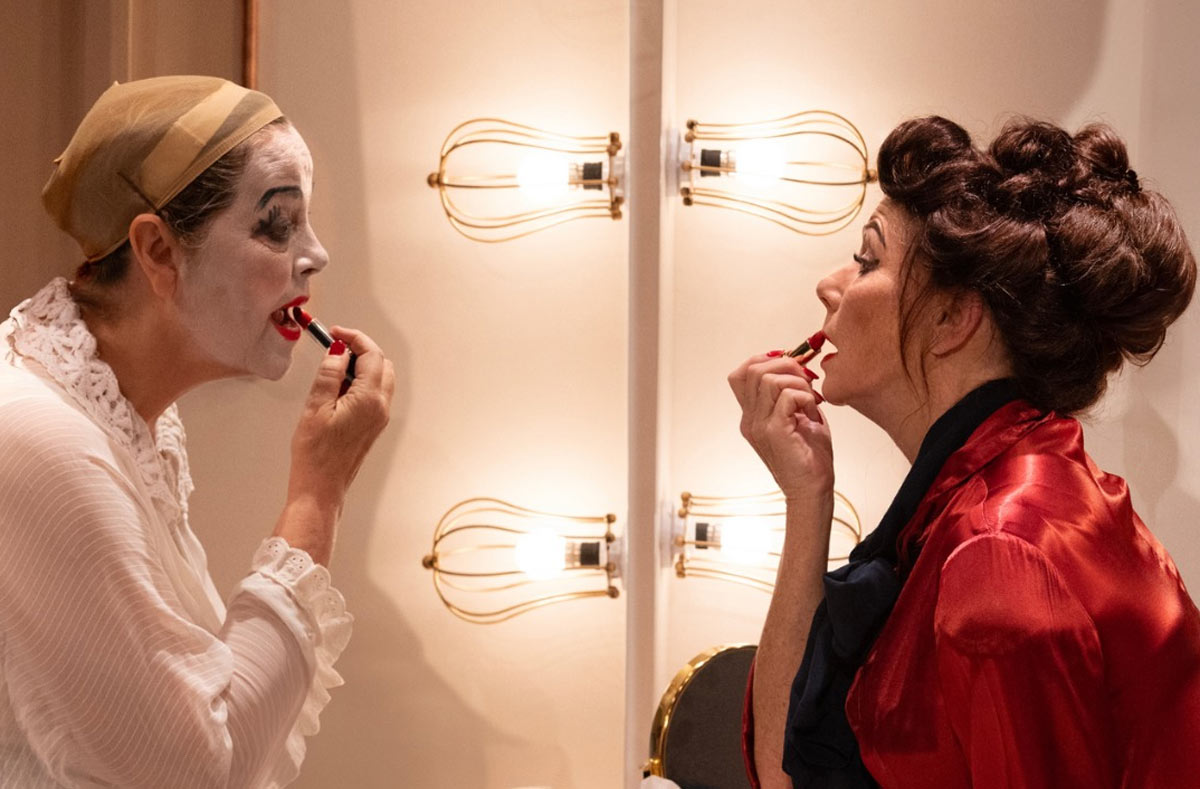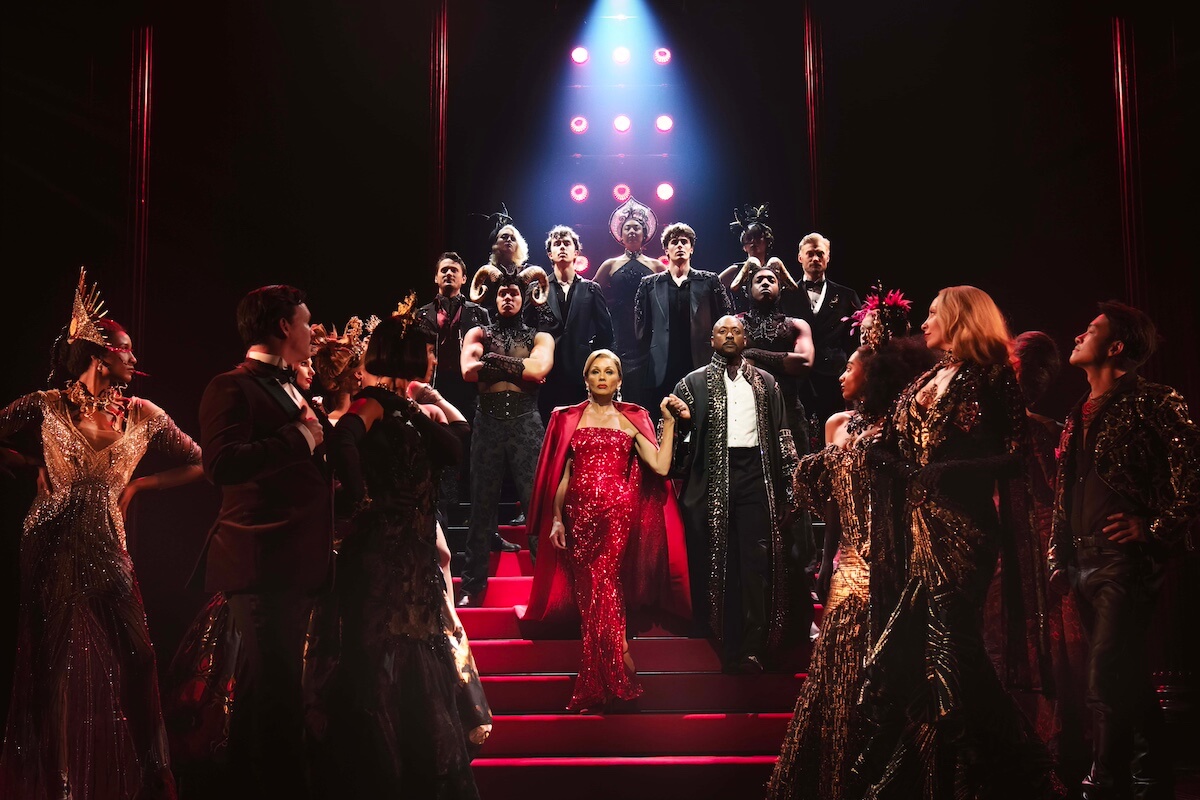In recent years, there have been a plethora of vehicles which have attempted to scrape away the fractious politesse which existed between the rival actresses in a bid to reveal the truth of their strained relations. Here, in Anton Burge’s single-day play, which was first staged in 2011, what should be a taut and vicious bout of sparring between a pair of towering egos, takes on an altogether more tragic and pathetic feel, as Greta Scacchi (both a mannered and vocally adept Davis) and Felicity Dean (the eternally glamorous but emotionally damaged Kansas pauper Crawford), recount their caustic views of each other and their oft-intertwined lives.
Infusing a joyous sense of spite and malice in each anecdote’s retelling, their bitter quips and baleful sense of victimhood is often amusing, but there is also a very real sense that women of a certain age — here, dropped by studio execs like Louis B Mayer and Jack Warner — were left high and dry, despite their decades spent contributing to movie successes and box office takings.
Set in 1962, with both in their twilight years, still holding grudges, dependent for love from the lingering line of adoring fans, and so desperate for work that both took roles in even the most tawdry third rate horror flicks, they bicker and plot ways to undermine each other on the set. Scacchi’s Bette is a short-tempered, irascible chain smoker, with an impish propensity for wisecracking barbs and a campy impatience when enduring Dean’s baleful and self-consciously ingratiating Joan. The former revels in declaring herself an actress (and one with Broadway experience!) rather than a mere movie star. She hisses the contemptuous term repeatedly, using it to disparage her neighbour in the adjoining dressing room.
We get a real sense that both were unfortunate in love (largely as a result of placing their careers above all else), but by the end, there is little to suggest in director Sue Jenkins’ production that either of these faded titans of Hollywood’s Golden Era had any genuinely redeeming humanity. Both were as bad as each other and despite recognising that they could have succeeded more effectively by working together, the play’s snapshot into their brief period of professional collaboration is a textbook example of insincerity and pointless combativeness, when in truth they undoubtedly had a great deal in common.

 Greta Scacchi (Joan) and Felicity Dean (Bette) in Bette & Joan at Park Theatre. Photo Simon Annand
Greta Scacchi (Joan) and Felicity Dean (Bette) in Bette & Joan at Park Theatre. Photo Simon Annand

